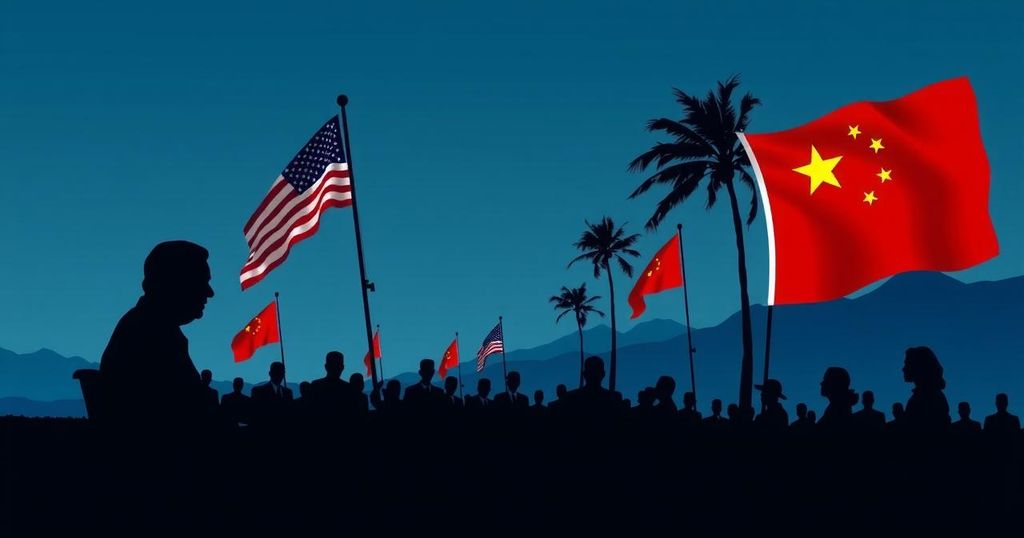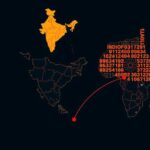US-China Competition at the Forefront of Pacific Islands Forum Discussions
The recent Pacific Islands Forum (PIF) has illustrated the ongoing rivalry between China and Western democracies, particularly with regard to Taiwan’s participation in regional dialogues. Analysts highlight that Beijing’s concerted efforts to restrict Taiwan’s involvement were prominently displayed during the PIF, which concluded last Friday. Notably, the Solomon Islands, an ally of China, attempted to prevent Taiwan from participating in future forums. Subsequently, a contentious reference to Taiwan was removed from the final communique after protests from Chinese officials, which originally had reaffirmed a longstanding agreement that permitted Taiwan’s engagement with the forum for the past thirty years.
Beijing’s leadership maintains that Taiwan, which operates as a democratic entity, is an integral part of China. To this end, they have persistently sought to limit Taiwan’s presence in international institutional frameworks. In response to the developments at the PIF, Taiwan’s Foreign Ministry expressed vehement condemnation of China’s influence, describing it as an arbitrary act that threatens regional stability. Nonetheless, the Ministry clarified that this alteration does not detract from Taiwan’s role at the forum nor does it preclude its future participation.
Kathryn Paik, a senior advisor at the Asia Group and former National Security Council member, emphasized the significance of Taiwan’s status as a valuable development partner despite the recent events. She noted that China’s strategic pursuit of influence in the Pacific involves deploying a greater number of diplomats to the region than the United States, allowing China to exert considerable sway over diplomatic discussions. The failed attempt by the Solomon Islands to exclude Taiwan serves as a testament to the respect many Pacific nations have for Taiwan’s developmental contributions.
PIF officials did not provide a rationale for the removal of Taiwan from the communique, yet they confirmed the organization’s ongoing welcome of Taiwan’s participation in future regional meetings. Chinese Special Envoy for the Pacific, Qian Bo, characterized the original inclusion of Taiwan as a “mistake” that needed rectification, asserting that China represents all territories within its claim, including both mainland China and Taiwan.
In contrast, Taiwan has solidified its commitment to the Pacific Islands by extending its development partnership through 2027, focusing on areas such as agriculture, education, healthcare, communications technology, women’s empowerment, and infrastructure advancements. The United States State Department also reinforced its support for Taiwan’s continued presence in the region, framing China’s actions as coercive measures aimed at diminishing Taiwan’s international status.
Moreover, the recent PIF introduced U.S. territories, Guam and American Samoa, as associate members, enhancing their capacity to engage within the forum by allowing them to contribute speakers and nominate members for working groups. This expansion is seen as a further step in integrating U.S. territories into the greater Pacific Island community, enhancing the U.S. position within the forum and potentially mitigating China’s influence.
Experts argue that such developments present an opportunity for the United States to demonstrate its resolve in countering Chinese pressures and reinforcing its partnerships in the Pacific region. Washington’s active engagement and willingness to impose tangible consequences on Beijing’s assertive tactics will be crucial in shaping sustainable diplomatic ties with Pacific nations and in securing a balanced approach to cooperation and dialogue in the region.
This analysis illustrates the complex geopolitical dynamics at play within the Pacific Islands, as the competition between China and the United States for influence continues to unfold amid pressing regional interests.
This report incorporates information from Reuters as a reference to the evolving diplomatic landscape.








Post Comment